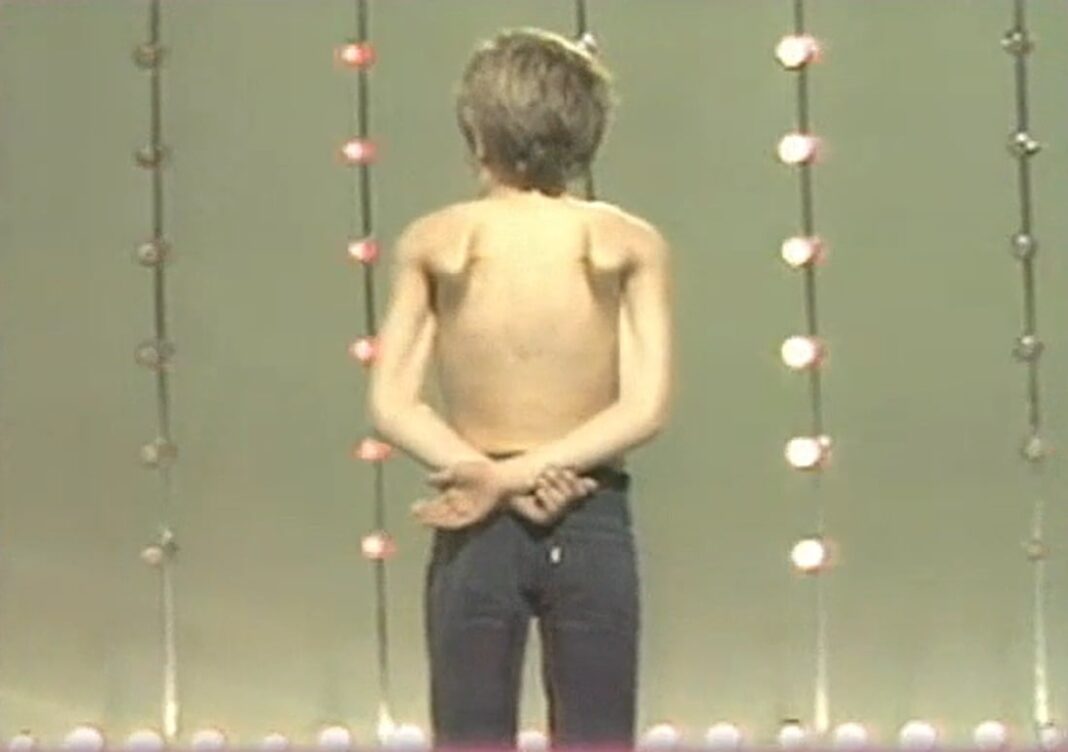BTN News: In the late 1970s, Spanish television had a unique way of bringing people together, especially on Sunday afternoons. With just one channel available, the nation would gather around their TV sets, enthralled by whatever was broadcasted, whether it was a talk show, a game show, or a quirky talent segment. One such memorable appearance happened on February 4, 1979, when a nine-year-old boy named Antonio Polo performed his unusual talent on the popular TV show “Fantástico,” hosted by the iconic José María Íñigo. This peculiar performance, remembered vividly by a few and lost in the annals of TV history, is now being rediscovered decades later, offering a fascinating glimpse into a different era of entertainment.
The Golden Age of Spanish Television
During the 1970s, Spanish households had little choice when it came to television. With just a single channel—TVE’s first network—families tuned in collectively, their Sundays filled with a mix of shows from talk programs like La Clave to variety spectacles like Fantástico. Hosted by the charismatic José María Íñigo, Fantástico quickly became a staple, offering a blend of interviews, musical performances, and curious talent acts that captured the spirit of the time.
Antonio Polo’s Big Moment: A Quirky Talent on Display
In early 1979, Fantástico introduced a new segment titled “¿Y Usted Qué Sabe Hacer?” (“What Can You Do?”), inviting people with unique talents from all over Spain to perform on national TV. Nine-year-old Antonio Polo seized this opportunity to showcase his peculiar abilities. Armed with a postcard and a lot of hope, young Antonio sent in his application, eager to display his knack for “weird and wonderful” skills.
His persistence paid off. Soon, the TV network contacted him, offering 5,000 pesetas and a plane ticket to Madrid—his first-ever flight. After a series of rehearsals at the iconic Prado del Rey studios, Antonio was ready for his television debut.
A Performance to Remember—or Was It?
On the fateful Sunday of February 4, 1979, Antonio Polo took to the stage. Stripping down to show off his slim frame, he performed his chosen act: moving his shoulder blades in a peculiar, wing-like motion. For 15 seconds, all eyes were on Antonio, and then he was gone, replaced by another act—a young law graduate mimicking the sound of a bombing raid. Antonio’s moment had come and gone in the blink of an eye, but for him, it was monumental.
Decades Later: A Search for the Lost Footage
Years went by, and Antonio’s fleeting fame faded, buried under the layers of everyday life. Like many families in 1979, his home lacked a video recorder, so he never got to see his moment of glory. As time passed, his imagination embellished the memory into something of an epic. In 2017, in the age of digital archives and social media, Antonio decided to seek out the footage that had eluded him for so long.
Rediscovering the Past: A Journey Through TV Archives
Antonio reached out to the RTVE Archive on Facebook, recalling only that his performance occurred in early 1979 alongside the glamorous Duo Baccara, who sang their hits “Yes Sir, I Can Boogie” and “Sorry, I’m a Lady.” Two months later, the archived episode of Fantástico from February 4, 1979, surfaced online. Antonio’s excitement was palpable. At long last, he could see himself on TV again—38 years after his brief brush with fame.
A Nostalgic Look Back at 1970s Spain
Watching the footage was like opening a time capsule. The Spain of 1979 appeared dated, a blend of gray tones, outdated fashions, and quaint performances. Yet, it also evoked a certain nostalgia, a reminder of simpler times when a country gathered around a single screen. As Antonio watched his younger self move his shoulder blades, he realized how much had changed—and how much hadn’t.
The Variety of Talents: A Snapshot of an Era
Antonio’s performance was one of many in a lineup that reflected the peculiar charm of 1970s Spain. Viewers that day saw a series of acts, each more unusual than the last: a serviceman from Torrejón Air Base who wiggled his hair and ears, a young telephone worker who mimicked a trumpet, a middle-aged man who imitated a chimpanzee, and even a woman who inflated a bellows with her ear. It was a time of eclectic entertainment, where almost anything could be a show.
Reflecting on an Unusual Fame
Antonio’s experience reminds us of a different era of television—one that seems almost unrecognizable today. Yet, it was also a time that, for those who lived it, feels like “the only one,” as singer Joan Manuel Serrat might say. Although it may seem quaint or even absurd now, these were the moments that made up a shared cultural memory, bringing joy, laughter, and a little bit of magic into the living rooms of Spain.
Conclusion: Rediscovering the Magic of Ordinary Moments
For Antonio Polo, finding his 15 seconds of fame wasn’t just about seeing himself on TV; it was about reconnecting with a childhood memory, an era of innocence, and a time when television was a window to a broader world. In rediscovering his brief performance, Antonio also uncovered a piece of Spanish cultural history—one that may seem distant today, but still resonates with those who remember it.


